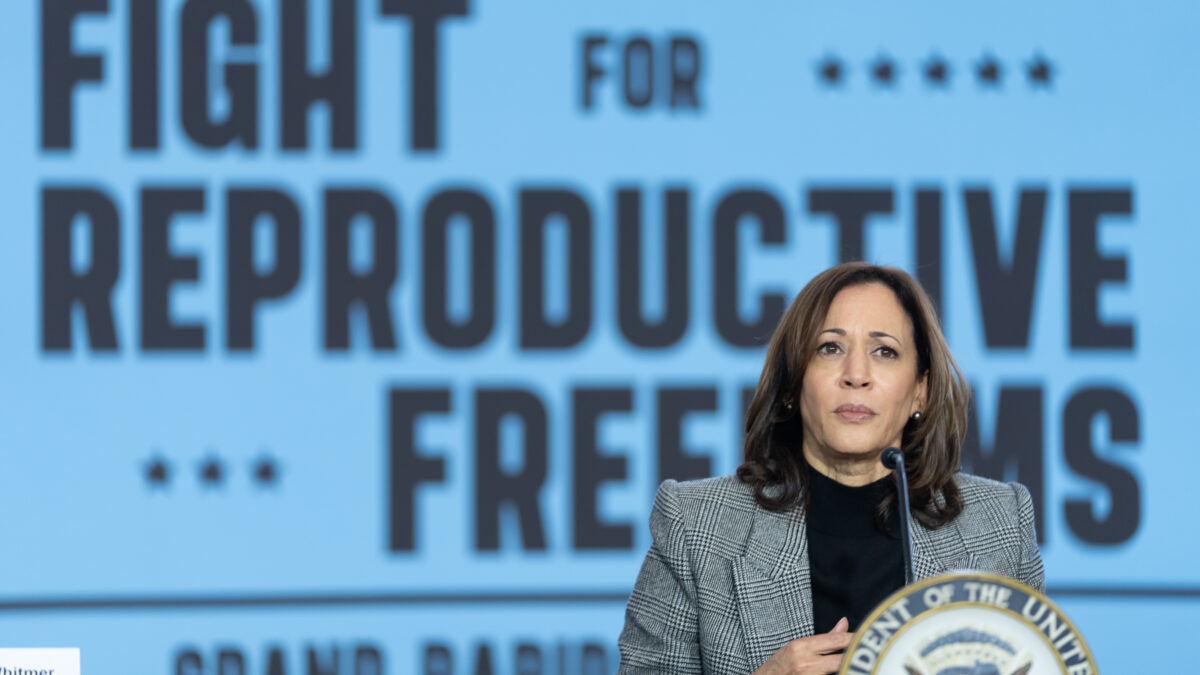
Washington Post gender columnist Monica Hesse, in her Aug. 26 criticism of pro-life activist Abby Johnson’s recent speech at the Republican National Convention, chose a curious word in her description of abortion. “Johnson had to describe abortion as a horror show because the alternative would have been too banal to achieve the effect she desired,” Hesse wrote. Abortions, Hesse says, are categorically banal.
Banality, Merriam-Webster tells us, is “something that lacks originality, freshness, or novelty.” The word also has connotations to a notorious book penned by the German-Jewish philosopher Hannah Arendt, based on her observations of the 1961 Israeli trial of Nazi war criminal Adolf Eichmann, entitled “Eichmann in Jerusalem: A Report on the Banality of Evil.”
In that essay, for which Arendt was unfairly maligned, she explains her arresting experience watching Eichmann, an S.S. officer responsible for coordinating the transportation of millions of people to European death camps. Eichmann, much to her surprise, was no horrific monster or sadistic genius. He was a competent, if unremarkable, bureaucrat who spoke in simplistic clichés.
This realization elicited a different kind of terror from Arendt. Eichmann was a “joiner,” a person unable to think for himself, who saddled up with organizations that could give his life meaning. He wasn’t mentally ill, nor did he suffer from some personality disorder. He was a more-or-less regular person, possessing an average intellect, who simply went with the flow.
That meant, Arendt observed, that great evil could be, and often was, perpetrated by “average people,” who “meant well,” and sought to apply certain widely accepted moral premises. In Eichmann’s case, this was Immanuel Kant’s categorical imperative: “Act only according to that maxim whereby you can, at the same time, will that it should become a universal law.”
An Abortion Wake-Up Call
Consider Hesse’s remarks in light of Arendt’s analysis. An abortion — in which a living being, who owes its origin to two other human beings, is eliminated — is banal.
According to current medical science, a human embryo at five weeks old is already developing a brain and spinal cord. At six weeks, a beating heart can be detected, and eyes are starting to emerge. In week seven, the heart, kidneys, liver, lungs, and intestines are already forming. Abortions are currently legal in the United States at these early stages. Most happen in these first 12-14 weeks, the first trimester of pregnancy.
Hesse acknowledges, “[A]s a reporter covering women’s health care, I’ve witnessed at least 20 [abortions].” Don’t worry, Hesse says, responding to Johnson’s description of doctors piecing together the post-abortion fetal remains to make sure the “procedure” is complete. “That’s true. But it’s not some ghoulish jigsaw puzzle done on a lark. It’s because an incomplete abortion could be dangerous to a patient’s health, and abortion doctors care about women’s lives.” Hesse apparently expects this to comfort the reader.
No wonder Johnson and other pro-life advocates employ dramatic, disgusting language. Can you imagine being the medical practitioner piecing together the tiny parts of a human fetus you just aborted? Can you imagine being the mother watching such a thing? Can you imagine being the father of that once-living being? What has happened to the American conscience that such descriptions do not elicit horror?
This is precisely what Arendt was talking about. Political realities, whether dressed up in language such as “the final solution” or “reproductive rights,” makes stomach-churning monstrosities into “mere functions of state,” committed, as one pro-life writer notes, “without passion, without malice, [but] with indifference.” Eichmann himself testified that he truly believed he was working for a greater good. That sounds eerily similar to how pro-abortion advocates talk about how that act is inextricably linked to women’s rights and well-being.
Johnson’s language is thus a disturbing if necessary wake-up call to an American electorate who have become far too accepting of a taxpayer-funded political project that has destroyed the lives of more than 60 million Americans since Roe v. Wade in 1973. Students of history will know that many people were incredulous at early reports of the Holocaust. This is one reason Supreme Allied Commander Dwight D. Eisenhower ordered that photographs be taken of the death camps his forces encountered in central Europe. Hesse accuses Johnson of perpetrating a “horror show,” but to a deadened American people, that’s what is required.
Freedom for Whom?
In his masterful book “After Virtue,” philosopher Alasdair MacIntyre observes how Western public discourse has devolved into irreconcilable ethical debates, including over abortion. He notes that some in the West say a woman’s right to her own body extends to the embryo in her womb and that such a mother thus has a right to do as she pleases to that living, growing being, including depriving it of access to her lifesaving biological nourishment. Others label abortion as the taking of innocent life, a form of murder, and condemn it.
In a society in which both these worldviews are affirmed as normal and thus inform the law, what does one do? The underlying premises of these two views directly contradict one another.
Even more confusing, many Americans foster cognitive dissonance with regard to personal freedom. Hesse certainly does. She accuses Johnson of trying “to police other people’s lives and call it freedom.” Yet elsewhere she expresses wholehearted support for other forms of government policing of people’s lives, including enforcing various coronavirus-related restrictions and gun control. In other words, individual liberty is paramount, except when lives are at stake — well, some lives.
Both Hesse and Johnson say they stand firmly in favor of freedom — Hesse, for the freedom of women and their bodies, and Johnson, for the freedom of all humans, whether outside the womb or in utero. That millions of Americans line up on both sides reveals a deep irrationality in contemporary political debates, one that defies reason, given the extensive scientific and philosophical evidence demonstrating human embryos are undeniably human.
Johnson’s language at the RNC might have been arresting and unnerving. But in a society that can’t make up its mind about what lives matter, what else can she do?









